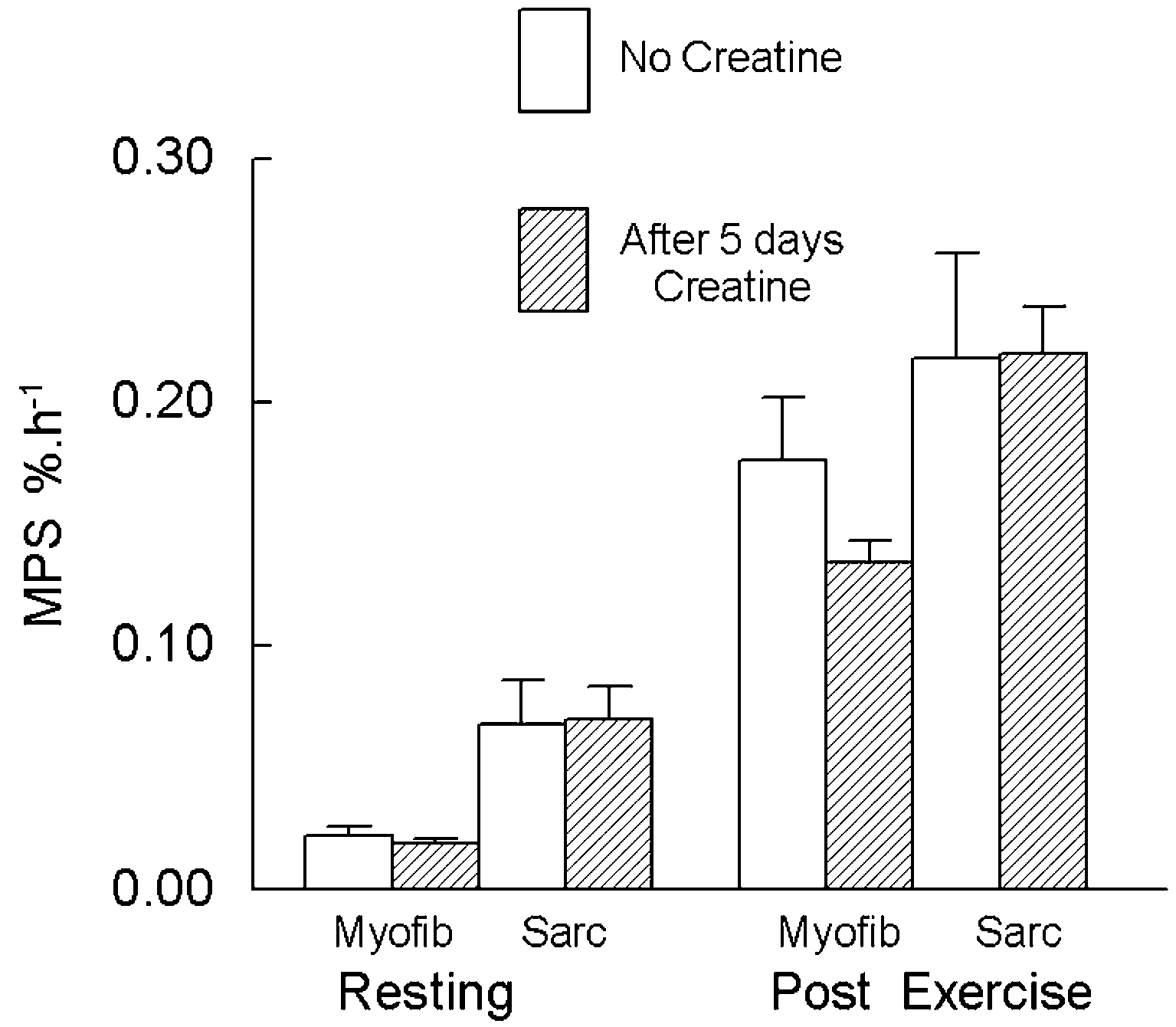Creatine dietary supplementation by training athletes is associated with increases in muscle mass but the mechanism is unknown. There is no effect of creatine supplementation on muscle protein turnover at rest in the post-absorptive or fed states (Louis et al. 2001). However it is possible that any anabolic effect of creatine is only seen after muscle contractile activity. To test this we studied the effects of creatine supplementation on muscle protein synthesis (MPS) in six healthy men (72.7 ± 2.3 kg, 177 ± 5.1 cm, 21.1 ± 1.6 years, means ± S.D.) after strenuous exercise. The local ethics committees (Universite Libre and H™pital Erasme, Bruxelles) provided approval. We used a protocol which allowed measurements of MPS (as incorporation of [1-13C]leucine administered by a primed constant infusion at 1 mg kg-1 h-1) at rest then again 3 h after strenuous exercise. With the left leg, subjects performed 20 sets of 10 repetitions of leg extension-flexion on a Cybex at 80 % of 1-repetition maximum. Quadriceps muscle biopsies were taken using lignocaine (1 %) local anaesthesia in both the rest and exercise legs at the end of the exercise, and again 3 h later. From the end of exercise, subjects were fed orally, every 20 min (21 g maltodextrin + 6 g milk protein h-1) for 3 h. The study was carried out twice, 2 weeks apart; the second study was immediately the subjects had ingested creatine at 20 g day-1 for 5 days. The incorporation of [1-13C]leucine into myofibrillar and sarcoplasmic protein was measured by standard methods using gas chromatography-combustion-mass spectrometry after protein separation and hydrolysis.
The results (Fig. 1) confirm the lack of an effect of creatine on resting myofibrillar and sarcoplasmic protein synthesis. Strenuous exercise stimulated MPS (myofibrillar ~8-fold and sarcoplasmic ~3-fold, P < 0.01, ANOVA) but the stimulatory effects were no greater after the subjects had ingested creatine. Thus, any anabolic effect of creatine on muscle in training athletes is unlikely to be due to contraction-dependent effects.
This work was supported by MRC, The Wellcome Trust and The University of Dundee. M.L. is funded by the Fonds du patrimoine pour la recherche médicale, Université catholique de Louvain.

